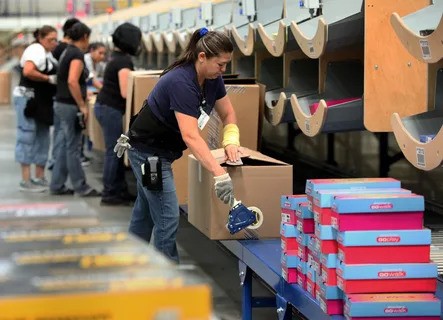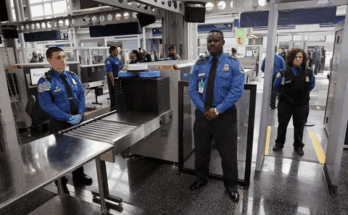Canada Factory Packing Jobs
Factory packing jobs in Canada are gaining momentum as the nation’s manufacturing, food processing, and distribution industries continue to thrive. Whether you’re a recent high school graduate, a skilled worker looking to transfer your experience, or an immigrant seeking stable employment, factory packing roles offer a wealth of opportunities. This article is your one-stop resource for understanding the ins and outs of factory packing jobs in Canada, including details on various job titles, how to apply, the benefits and perks of working in this field, and what to expect on the job.
1. The Growing Demand for Factory Packing Jobs in Canada
Canadian factories and distribution centers are essential to the country’s economy. They ensure that products—from processed foods to consumer goods—are safely packaged, labeled, and shipped. Industries such as food processing, beverage manufacturing, and consumer packaged goods rely on dedicated packing workers to maintain quality standards and timely deliveries. As companies modernize their production lines and adopt automation, the need for skilled packing operators and pickers/packers remains strong.
Increasing urbanization, the surge in e-commerce, and Canada’s reputation for high-quality manufacturing all contribute to a promising outlook for factory packing jobs. Furthermore, positions in this field often serve as an entry point for individuals looking to establish a long-term career in industrial operations and supply chain management.
2. Exploring Different Factory Packing Roles
Factory packing jobs cover a range of roles, with responsibilities that may vary depending on the industry or scale of the operation. Below are several key positions commonly found in Canadian factories:
2.1. Packing Operator
Packing operators are responsible for running and monitoring machines that package products. Their daily tasks include setting up equipment, adjusting settings to match production requirements, and ensuring that packages are correctly sealed and labeled. They must also inspect products for defects and report any issues to the maintenance or quality control teams.
Job Responsibilities:
-
Operate automated packaging machinery.
-
Adjust equipment settings based on product specifications.
-
Inspect packages for quality and consistency.
-
Record production metrics and machine performance.
-
Follow strict health, safety, and sanitation guidelines.
2.2. Picker/Packer
Picker/packers work on the production floor to gather items from inventory, assemble customer orders, and pack them securely for shipment. This role often involves manual handling, attention to detail, and the use of handheld scanning devices to manage inventory.
Job Responsibilities:
-
Pick items from storage areas based on customer or production orders.
-
Assemble and pack orders carefully using appropriate packaging materials.
-
Label and seal packages accurately.
-
Update order status using inventory software.
-
Maintain an organized and clean work area.
2.3. Factory Packing Worker
A factory packing worker’s responsibilities may blend elements of both machine operation and manual assembly. They might work in food packaging plants, consumer goods factories, or beverage production facilities. This position is critical for ensuring that products meet quality standards before reaching the market.
Job Responsibilities:
-
Manually pack products into boxes or containers.
-
Inspect products for damage or inconsistencies.
-
Follow predetermined packaging guidelines.
-
Ensure products are correctly weighed and measured.
-
Collaborate with other team members to meet production targets.
2.4. Packaging Operator
Packaging operators are similar to packing operators but often work with a broader range of equipment. In addition to operating packaging machines, they may be responsible for troubleshooting equipment, making minor repairs, and maintaining production documentation.
Job Responsibilities:
-
Run and maintain packaging machinery.
-
Monitor machine performance and adjust settings as needed.
-
Ensure optimal utilization of packaging materials.
-
Perform routine maintenance and quality control checks.
-
Communicate with supervisors regarding equipment issues.
2.5. Supervisory Roles and Advanced Positions
For those looking to advance, there are supervisory roles available within factory packing and packaging settings. These roles include team leader positions, production supervisors, and even higher-level management positions such as factory supervisors or operations managers. Advancement to these roles typically requires a solid track record, leadership skills, and sometimes further formal education or certifications.
Job Responsibilities for Supervisory Roles:
-
Oversee team operations to ensure smooth workflow.
-
Train and mentor new employees.
-
Conduct performance evaluations and manage scheduling.
-
Ensure compliance with safety and production standards.
-
Liaise between workers and upper management.
3. How to Get a Job in the Canadian Factory Packing Sector
Entering the factory packing industry in Canada can be straightforward, even for those without previous experience. Here are some strategies to increase your chances of landing a job:
3.1. Build a Relevant Resume
Craft a resume that highlights any experience you have in manufacturing, warehousing, or physical labor roles. Even if you do not have specific factory packing experience, include skills such as teamwork, attention to detail, and reliability. Emphasize any certifications (such as forklift operation or safety training) that could give you an edge.
Resume Tips:
-
Use keywords such as “factory packing,” “packaging operator,” “picker/packer,” and “warehouse operations.”
-
Detail your work experience, emphasizing any roles that required physical stamina or manual dexterity.
-
List any relevant education or vocational training, even if informal.
-
Mention soft skills like punctuality, teamwork, and communication.
3.2. Utilize Job Boards and Recruitment Websites
Numerous Canadian job boards are dedicated to industrial and manufacturing roles. Websites such as Indeed, LinkedIn, and specialized platforms like Job Bank (offered by the Government of Canada) are excellent starting points. Create profiles, upload your resume, and set up job alerts for factory packing roles.
Useful Platforms:
3.3. Consider Temporary or Contract Work
Temporary positions or contract work can be an effective way to gain experience and get your foot in the door. Many factory packing jobs start as temporary roles that can eventually lead to permanent positions, offering on-the-job training and the chance to demonstrate your skills.
3.4. Networking and Recruitment Agencies
Sometimes, direct applications aren’t enough. Networking with industry professionals or contacting recruitment agencies that specialize in manufacturing and logistics can help uncover opportunities that aren’t listed on public job boards. Attend local job fairs, join industry forums, or connect with professionals on LinkedIn to stay updated.
3.5. Prepare for Interviews
If you’re invited for an interview, be prepared to answer questions about your ability to work in a fast-paced, physically demanding environment. Employers will likely ask about your previous work experience, your ability to follow safety procedures, and how you handle repetitive tasks. Be ready with concrete examples that demonstrate your work ethic and attention to detail.
Common Interview Questions:
-
“Can you describe your experience in a fast-paced production environment?”
-
“How do you ensure quality control when packing products?”
-
“What steps do you take to maintain safety standards on the work floor?”
-
“Have you ever identified and solved a problem during production? Tell us about it.”
4. Key Benefits and Perks of Factory Packing Jobs in Canada
Factory packing roles offer several advantages that make them an attractive option for many job seekers in Canada:
4.1. Job Security
Manufacturing and distribution sectors are essential to the Canadian economy, ensuring a steady stream of job opportunities. This stability means that even entry-level positions often come with the promise of continuous employment.
4.2. Competitive Wages and Overtime Opportunities
Hourly wages in the factory packing industry can range widely—from entry-level positions starting at around CAD 13 per hour up to CAD 40 per hour for more specialized roles or experienced workers. Many companies also offer overtime pay, which can significantly boost your earnings.
4.3. Comprehensive Benefits Packages
Many employers provide attractive benefits packages that include health insurance, dental care, paid vacation, and retirement plans (such as RRSP contributions). In larger companies, additional perks such as employee discounts, performance bonuses, and career development programs may also be available.
4.4. On-the-Job Training and Skill Development
Factory packing jobs often include on-the-job training, meaning you can develop valuable skills without needing prior specialized experience. This training not only helps you excel in your current role but also opens the door to further advancement within the company.
4.5. Opportunities for Advancement
Starting out in a factory packing position can serve as a stepping stone to supervisory or managerial roles. Many companies have clear career ladders in place, allowing workers to move up as they gain experience and demonstrate their commitment.
4.6. Multicultural Work Environments
Canada’s diverse workforce is reflected in its factories. Working in a multicultural environment can be enriching on a personal level, allowing you to interact with colleagues from various backgrounds and learn new perspectives.
4.7. Physical Fitness and Routine
Although the physical demands of factory packing work can be challenging, they also keep you active throughout the day. If you enjoy a physically active job that keeps you moving rather than sitting at a desk, this career may be an ideal fit.
5. Detailed Job Responsibilities and Daily Routine
To truly understand what a day in the life of a factory packing worker looks like, consider the following detailed breakdown:
5.1. Starting the Shift
Most factory packing workers begin their shift by checking safety updates, reviewing the day’s production targets, and conducting a quick inspection of their work area. Safety gear—such as steel-toed boots, gloves, and protective eyewear—is mandatory, ensuring compliance with strict workplace safety regulations.
5.2. Machine Operation and Manual Packing
Depending on the role, you may be required to operate automated packing machines. For those in machine-based roles, tasks include:
-
Programming machines with production variables.
-
Monitoring machine outputs to ensure packages meet quality standards.
-
Adjusting machine settings if the product or packaging materials change.
In more manual roles, your responsibilities include:
-
Sorting items and preparing them for shipment.
-
Assembling packages, which could involve placing items in boxes, adding protective padding, and sealing containers.
-
Using handheld devices to scan products and update inventory systems.
5.3. Quality Checks and Documentation
Quality assurance is critical in factory packing jobs. After packing, you might be responsible for:
-
Inspecting finished packages for any signs of damage or defects.
-
Weighing and measuring packages to meet shipping standards.
-
Documenting production statistics, including the number of packages completed and any issues encountered during the shift.
5.4. End-of-Shift Duties
At the end of the shift, workers typically:
-
Perform a cleaning routine to ensure the workspace remains tidy and free of hazards.
-
Log any machine issues or material shortages for the next shift.
-
Participate in team meetings or briefings to discuss what went well and any areas for improvement.
6. Industries Utilizing Factory Packing Jobs
Factory packing jobs are not confined to one industry. In Canada, you’ll find these roles in various sectors, including:
6.1. Food and Beverage Industry
Companies like Nestlé, Maple Leaf Foods, and regional food processing plants frequently hire packing workers to handle perishable and non-perishable goods. This industry emphasizes strict hygiene and safety protocols, making on-the-job training a key component of the role.
6.2. Consumer Goods and Electronics
Packaging plays a crucial role in protecting consumer goods—from electronics to household items—during shipping. In this sector, packing jobs may require knowledge of specialized packaging techniques to prevent damage.
6.3. Pharmaceutical and Medical Supplies
In factories that produce pharmaceutical products or medical devices, adherence to industry regulations is paramount. Packing workers in these environments must follow highly regulated procedures to ensure that products are safe for end users.
6.4. Automotive and Industrial Components
The automotive and heavy machinery industries also employ packing workers to handle large or irregularly shaped items. These jobs sometimes require additional physical strength and the ability to operate heavy machinery like forklifts.
7. Future Trends and How Automation Impacts Factory Packing Jobs
Advancements in technology continue to shape the manufacturing sector. While automation has replaced some repetitive tasks, skilled workers remain essential for quality control, troubleshooting, and ensuring a smooth workflow. Future trends in factory packing may include:
-
Increased Use of Robotics: Collaborative robots (cobots) are working alongside human operators to lift heavy items, scan products, and even sort packages.
-
Data-Driven Quality Control: Real-time data collection through integrated sensors and software can help monitor production quality and predict equipment maintenance needs.
-
Enhanced Worker Safety: Technological innovations are focusing on reducing workplace accidents by incorporating advanced safety systems and predictive maintenance on equipment.
While automation may reduce the physical strain for some workers, the human element remains crucial. The ability to adapt to new technology is often a key qualification for advancing in this field. Training programs are increasingly incorporating technical skills that support automation, ensuring that employees are both job-ready and future-proof.
8. Benefits Beyond the Paycheck
Working in a factory packing job in Canada is about more than just the hourly wage or salary. It’s an opportunity to build a skill set that is transferable across industries. Many workers report feeling a strong sense of job satisfaction and pride in contributing to Canada’s industrial backbone. Here are additional non-monetary benefits:
8.1. Professional Growth and Development
Many large companies provide continuous learning opportunities—from skills training in advanced machinery operation to management and leadership courses. This can lead to promotions, wage increases, and new challenges within the organization.
8.2. A Supportive Work Environment
With a strong emphasis on safety and teamwork, many Canadian factories foster a collaborative culture. Employees often build lasting relationships with colleagues, and a supportive supervisory structure ensures that even entry-level workers can ask questions, receive guidance, and grow on the job.
8.3. Stability During Economic Fluctuations
The manufacturing and logistics sectors generally fare better during economic downturns because their products remain in demand. This means factory packing jobs tend to offer greater stability compared to industries more heavily affected by economic swings.
8.4. Diverse Workplaces
Canada’s commitment to multiculturalism is evident in its workforce. Working in a factory packing environment exposes you to colleagues from various cultural backgrounds, enriching your work experience and fostering an inclusive community atmosphere.
9. Final Thoughts: Is a Factory Packing Job Right for You?
Factory packing jobs in Canada offer a robust combination of stability, competitive pay, professional growth opportunities, and a dynamic work environment. They are ideal for individuals who enjoy physical work, thrive in team settings, and are willing to learn and adapt to new technologies. Even if you are new to the field, the availability of on-the-job training and career development pathways make this a promising career choice.
Before applying, consider your personal strengths and career goals. Are you looking for an entry-level role that can lead to greater responsibilities over time? Do you want to work in a vibrant, diverse setting where teamwork is prized? If your answers are “yes,” then factory packing jobs in Canada could be the perfect fit for you.
10. Steps to Start Your Career in Factory Packing
If you’ve decided that you’re ready to dive into this career path, here are some actionable steps to get you started:
-
Update Your Resume: Emphasize any previous experience related to manufacturing, warehousing, or physical labor. Highlight relevant skills such as safety awareness, mechanical aptitude, and teamwork.
-
Obtain Certifications: Consider obtaining certifications that boost your credentials, such as a forklift operator’s license or safety training certificates. Many employers offer on-the-job training, but having additional certifications can set you apart.
-
Leverage Online Job Platforms: Regularly search for job openings on Canadian job portals like Indeed, LinkedIn, and the Government of Canada’s Job Bank. Set up alerts to receive notifications when new positions are posted.
-
Network: Connect with industry professionals by attending job fairs, joining LinkedIn groups, or participating in industry-specific events. Often, job referrals can accelerate your hiring process.
-
Prepare for Interviews: Practice answers to common interview questions and be prepared to discuss how you handle repetitive tasks, safety procedures, and teamwork. Emphasize your willingness to learn and adapt to new technology.
-
Apply with Confidence: Don’t be discouraged if you don’t have years of experience. Many employers welcome entry-level candidates who are reliable, motivated, and eager to learn.
Canada Factory Packing Jobs
Factory packing jobs are an essential part of Canada’s industrial landscape. With a diverse range of roles—from packing operators to picker/packers to supervisory positions—the sector offers something for everyone. These jobs are more than just a source of income; they provide stable employment, opportunities for advancement, and the chance to build a rewarding career in a fast-paced, evolving industry.
By understanding the various roles, preparing a strong application, and leveraging job portals and networking opportunities, you can unlock your future in one of Canada’s most dynamic sectors. Whether you are just starting out or seeking a career change, factory packing jobs in Canada offer a promising pathway to success.
Take the first step today—update your resume, acquire relevant certifications, and start applying for jobs that match your skills and ambitions. Your new career in the manufacturing and packaging industry awaits!



